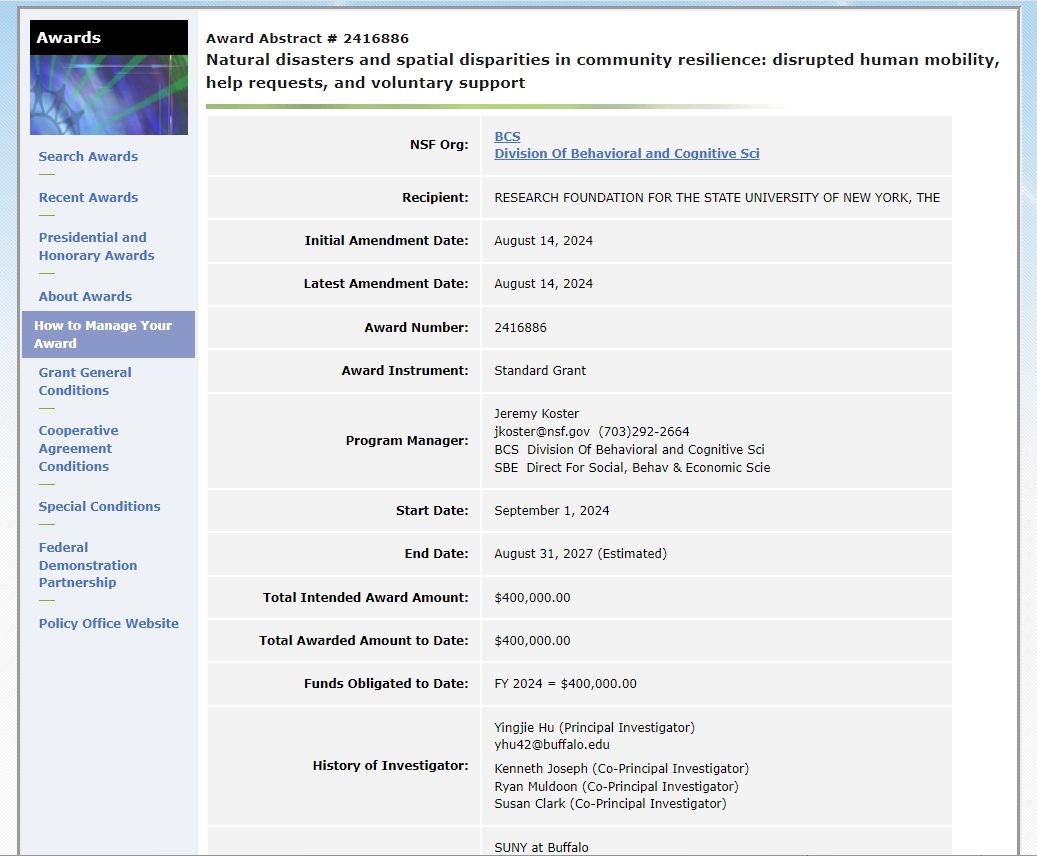Our lab receives a new NSF grant to study disrupted human mobility, help requests, and voluntary support during natural disasters. Focusing on a type of understudied disasters, i.e., winter storms, this project examines the impacts of natural disasters on community resilience from a geographical perspective. It examines three aspects of the human responses to natural disasters. First, anonymized mobile phone location data and GeoAI methods will be used to investigate spatial variation in the disrupted patterns of mobility. Second, we investigate spatial disparities in the extent to which residents request assistance from municipal authorities. Third, we study the geography of help-seeking behavior among social media users and the roles of digital platforms in facilitating voluntary support. We will also examine the socioeconomic and demographic factors associated with the variation of human behaviors and community resilience. This project is empirically grounded on a complement of datasets, engages theories in disaster resilience and disparities, and leverages a combination of methods in geographical and statistical analysis, GeoAI, and network modeling. Insights from this project and the developed methodological frameworks have the potential to inform future disaster studies on disaster-caused human mobility disruptions, community-initiated responses, and the roles that social media play in shaping these responses and spatial disparities.
NSF Award Link: https://www.nsf.gov/awardsearch/showAward?AWD_ID=2416886
